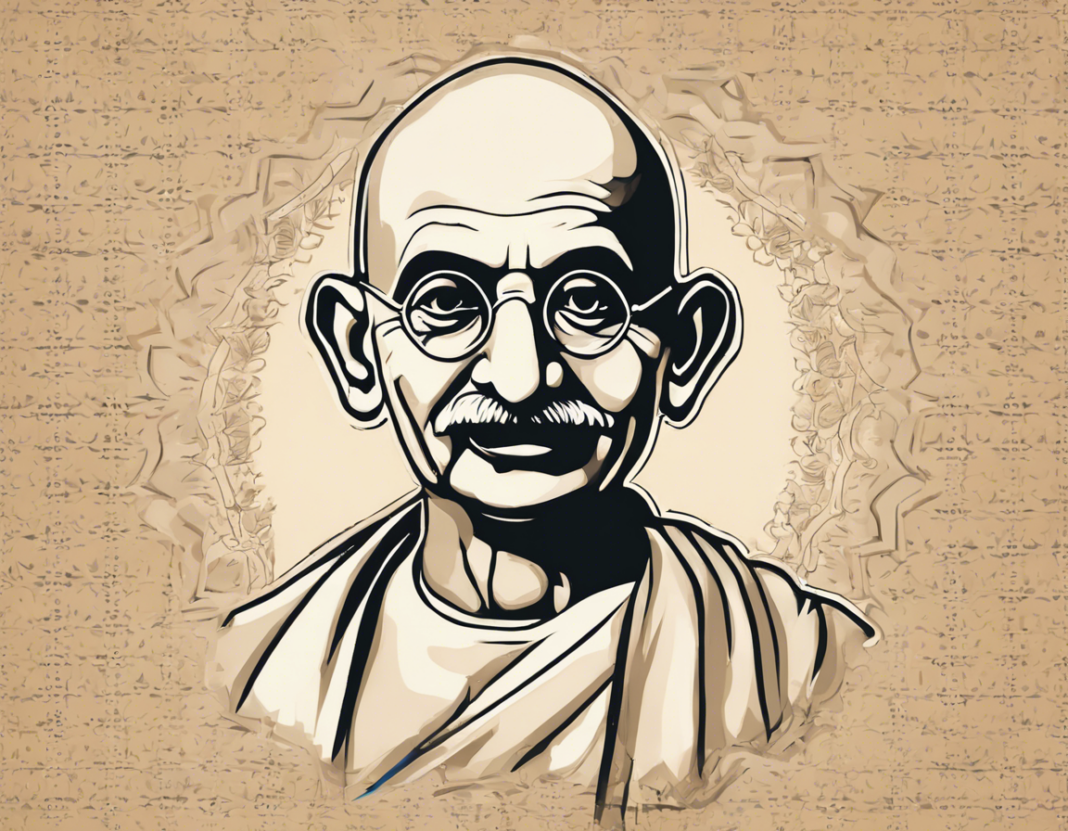Introduction
2 October holds great significance in India as it marks the birth anniversary of one of the most influential leaders in modern history – Mahatma Gandhi. Commonly known as Gandhi Jayanti, this day is celebrated with reverence and admiration for the man who led India to independence through nonviolent civil disobedience. Let’s delve deeper into the life and legacy of this remarkable figure.
Early Life and Influence
Mohandas Karamchand Gandhi was born on 2 October 1869 in Porbandar, a coastal town in present-day Gujarat, India. Raised in a devout Hindu family, Gandhi was deeply influenced by the teachings of nonviolence, compassion, and truthfulness. His mother, Putlibai, played a pivotal role in shaping his moral compass, instilling in him a sense of empathy and humility that would define his future principles.
After completing his education in law in England, Gandhi practiced in South Africa, where he witnessed firsthand the racial discrimination faced by Indians. This experience ignited his passion for social justice and civil rights, laying the foundation for his activism upon his return to India.
The Path to Nonviolent Resistance
Gandhi’s approach to nonviolent resistance, known as Satyagraha, was inspired by Hindu and Jain teachings of ahimsa (nonviolence) and satya (truth). He believed in the power of passive resistance to combat injustice and oppression, advocating for civil disobedience as a means to challenge unjust laws and policies peacefully.
Through movements such as the Salt March and Quit India, Gandhi mobilized millions of Indians in nonviolent protests against British colonial rule. His emphasis on self-discipline, soul force, and moral courage inspired a generation of freedom fighters and paved the way for India’s independence in 1947.
Legacy and Impact
Gandhi’s influence extended far beyond India’s borders, earning him the title of “Father of the Nation”. His philosophy of ahimsa and Satyagraha inspired leaders like Martin Luther King Jr., Nelson Mandela, and Aung San Suu Kyi in their struggles for equality and justice.
Gandhi’s legacy continues to resonate in today’s world, serving as a beacon of hope for peaceful resistance and social change. His teachings on simplicity, tolerance, and selflessness offer timeless wisdom for addressing contemporary challenges such as violence, inequality, and environmental degradation.
Commemorating Gandhi Jayanti
Gandhi Jayanti is observed with various events and activities across India and around the globe. Schools, government offices, and institutions organize prayer services, ceremonies, and cultural programs to honor Gandhi’s life and teachings. Community service initiatives, such as clean-up drives and blood donation camps, are also common on this day, reflecting Gandhi’s emphasis on public service and social responsibility.
FAQs
-
What was Gandhi’s role in India’s independence movement?
Gandhi played a central role in leading India to independence through nonviolent resistance against British colonial rule. His strategies of civil disobedience and peaceful protests galvanized the Indian masses and ultimately led to freedom in 1947. -
How did Gandhi’s principles influence other leaders around the world?
Gandhi’s philosophy of nonviolence and truth inspired numerous leaders globally, including Martin Luther King Jr., Nelson Mandela, and Aung San Suu Kyi. They adopted his methods of nonviolent resistance in their own struggles for justice and equality. -
What is the significance of Ahimsa in Gandhi’s teachings?
Ahimsa, or nonviolence, was at the core of Gandhi’s beliefs. He believed that true strength lies in compassion and that conflicts can be resolved peacefully through dialogue and understanding. -
How do people commemorate Gandhi Jayanti in India?
In India, Gandhi Jayanti is observed through prayer services, cultural programs, and community service activities. Schools and institutions often hold special assemblies to educate students about Gandhi’s life and principles. -
What are some of the key values promoted by Gandhi?
Gandhi promoted values such as truth, nonviolence, humility, and selflessness. He believed in the power of self-discipline and moral courage in the pursuit of social justice and human rights.
Conclusion
Gandhi Jayanti serves as a reminder of the enduring legacy of Mahatma Gandhi and his teachings of nonviolence, truth, and social justice. As we commemorate this day, let us reflect on the timeless wisdom of this remarkable leader and strive to uphold the values of peace, tolerance, and compassion in our own lives and communities. Gandhi’s message of unity and solidarity remains as relevant today as it was during India’s struggle for independence, inspiring us to work towards a more just and harmonious world.
